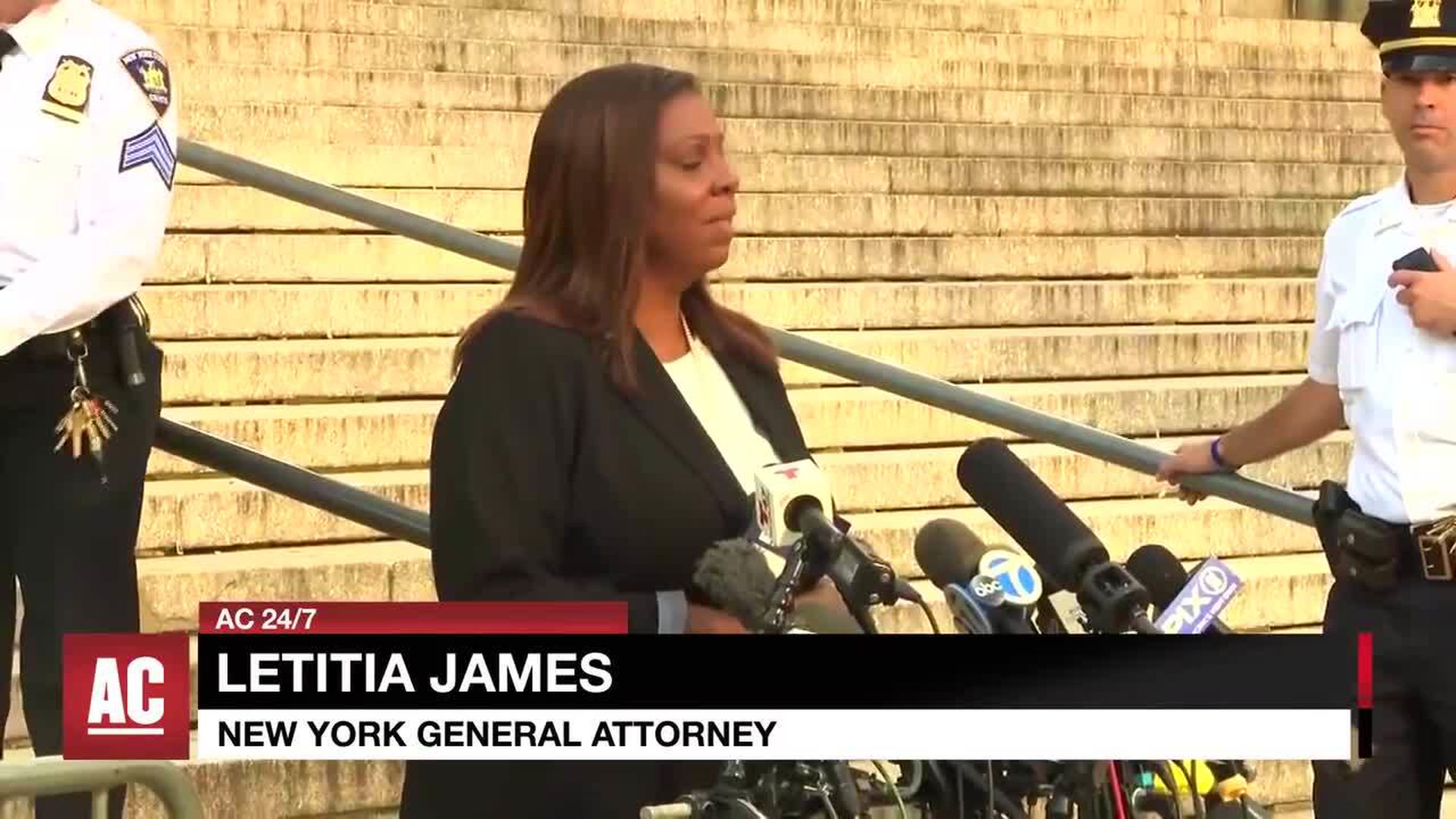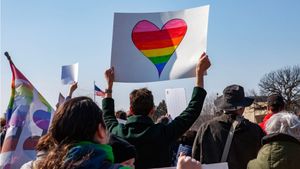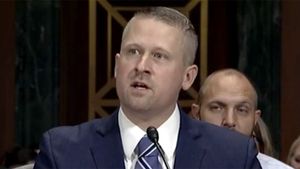Editor's note: Danielle Campoamor is a freelance writer and reporter, formerly of TODAY and NBC. The views expressed here are her own. Read more opinion on CNN.
(CNN) — After E. Jean Carroll took a seat inside a Manhattan courtroom in her ongoing defamation lawsuit against former President Donald Trump, one legal commentator described her posture as “not comfortably settled.” She was described as “perched” on the edge of her seat, “her back ruler straight, willing herself as far away from her assaulter, who was sitting two rows behind her, as she could … the seated embodiment of a fight-or-flight response.”
I know that posture all too well. Inside a small, nondescript room tucked away in the corner of a police department, I also sat perched on the edge of my seat, stiff and rigid as if the sexual assault I had endured days earlier killed a part of me and my body had entered a phase of rigor mortis.
On Thursday, Carroll took the stand while the man who was foundliable for sexually assaulting herin a luxury department store dressing room in 1996 sat nearby. (In May, 2023, Carroll was awarded $5 million for battery and defamation. She is now seeking at least $10 million in additional damages.)
Carroll found herself facing down not only a man found liable for assaulting her, but also a former president and current presidential frontrunner — an unprecedented example of the power dynamics survivors face. While a victim of sexual assault receives death threats, her assailant receives endorsements and secures the Iowa caucus.
During Carroll’s testimony, Trump repeatedly shook his head, according to CNN reporters inside the courtroom, and could be heard “loudly saying things” such as “it’s false,” “she’s gotten her memory back,” and, according to Carroll’s lawyer Shawn Crowley, that the lawsuit is “a witch hunt” and a “con job.”
At one point, Trump slammed the table in anger. Judge Lewis Kaplan eventually threatened to throw Trump out of the courtroom. The GOP 2024 presidential frontrunner threw his hands up in the air before responding, “I would love it.”
I have seen that type of anger in person. I have felt the painful sting of my abuser’s toxic, sinisterly childish denial. In my own futile attempt to seek justice, I endured what is known as a pretext phone call — I was asked to call my alleged attacker as a detective listened in and recorded the conversation. I was told I was a liar. I was being hysterical. He was sorry for what happened … but nothing happened.
Like so many sexual assault victims and survivors, Carroll’s ongoing pursuit of justice, the court proceedings and the response of her alleged abuser have been re-traumatizing. When the former columnist first came forward with her allegations, calls to the National Sexual Assault Hotline increased by 53% in just three days, according to the Rape, Abuse & Incest National Network (RAINN).
And while my case never made it to criminal trial — out of 1,000 instances, only 13 cases will be referred to a prosecutor, according to RAINN — and I declined to take any civil action, I see my pain in Carroll’s posture during her pursuit of civil justice. I also see a stark reminder of how this country and its judicial system purposefully treats rape victims.
One in six women, and one in 10 men, will be victims of sexual assault at some point in their lives, according to RAINN. The US Department of Veterans reports that one in three victims of sexual assault will experience post-traumatic stress disorder sometime during their lives.
Like so many survivors, Carroll likely knew what was coming when she chose to bring a case against the former president not once but twice. She was likely advised as to how difficult the court proceedings would be, especially if she went through them again and if her alleged assaulter was present.
But that knowledge does not protect Carroll — or any of us — from how the justice system’s design inherently retraumatizes victims. Studies have shown that many victims do not come forward because they don’t trust the process, don’t think the authorities will believe them and do not want to be revictimized by the process as it exists today. Studies also show that criminal proceedings can be just as traumatizing as the assault(s).
As Chanel Miller, once known as Emily Doe and who was sexually assaulted by Brock Turner, said in her victim impact statement: “And then it came time for him to testify and I learned what it meant to be revictimized.”
It is a privilege, of sorts, to get your day in court as a survivor of sexual assault — let alone two. But the underlying narrative is that Carroll and those like her are “lucky” to be in such an agonizing position — that privilege and the courage to come forward morph into some kind of shield that protects people from the trauma of having their pain denied, their character assassinated and their intentions questioned.
Simultaneously, survivors are blamed if they don’t come forward. It is on us, society says, to dig at our scabs, reveal our scars and relive our pain so that what happened to us doesn’t happen to anyone else. According to RAINN, themost common reasons victims give for coming forwardis to protect others, to prevent the offender from reoffending and because “they believed they had a duty to do so.”
I hesitated to come forward because I knew what, even under the best of circumstances, I would have to endure. Like Carroll, I knew I wasn’t the so-called perfect victim — an illusion designed to keep survivors siloed and silenced. I waited to go to the police a full 24 hours after the assault. I took a shower, washing away evidence in some desperate attempt to simply feel clean. I had been drinking. I couldn’t remember all the details, which is common among sexual assault survivors. In instances of high stress or terror, our brain’s function is impaired and memories become fragmented. It’s an innate defense mechanism meant to help us survive — a defense mechanism often used against us in the court of law and public opinion.
I knew I likely wouldn’t win a case, or even see a day in court. I filed a report anyway, and the trauma of not only the assault but of that process will remain with me forever.
Carroll spoke about the retraumatization she has experienced as a result of coming forward and bringing two cases against one of the most powerful men in the world. She has endured endless death threats. She has received rape threats. She is sent hundreds of graphic descriptions of violence a day.
“I will never, never get used to attacks like that,” Carroll testified.
But just as our traumas will stay forever stuck to our rib cages, at times making it difficult to breathe, so will — I hope — Carroll’s words when asked why she would endure not one, but two highly publicized lawsuits:
“I wanted people to know that a woman can speak up and win a trial,” she said. “I don’t want to be quiet now. I’m 80. It’s not right to try to make women be quiet. It has been going on for too long.”
The-CNN-Wire
™ & © 2024 Cable News Network, Inc., a Warner Bros. Discovery Company. All rights reserved.

Video Source: Advocate Channel


















































